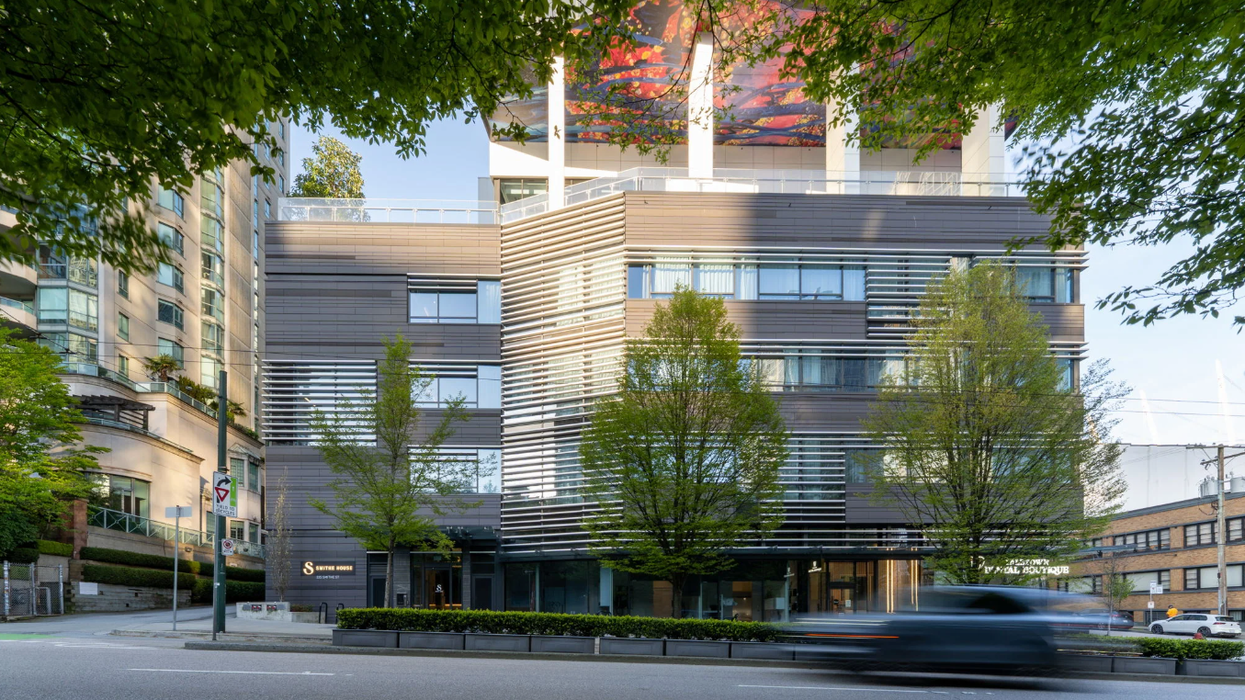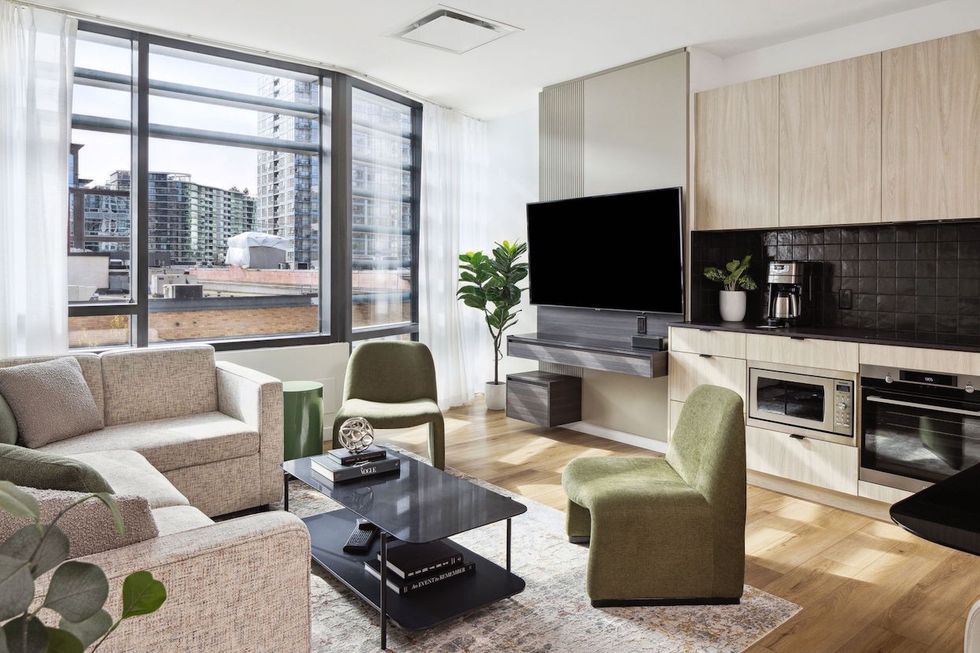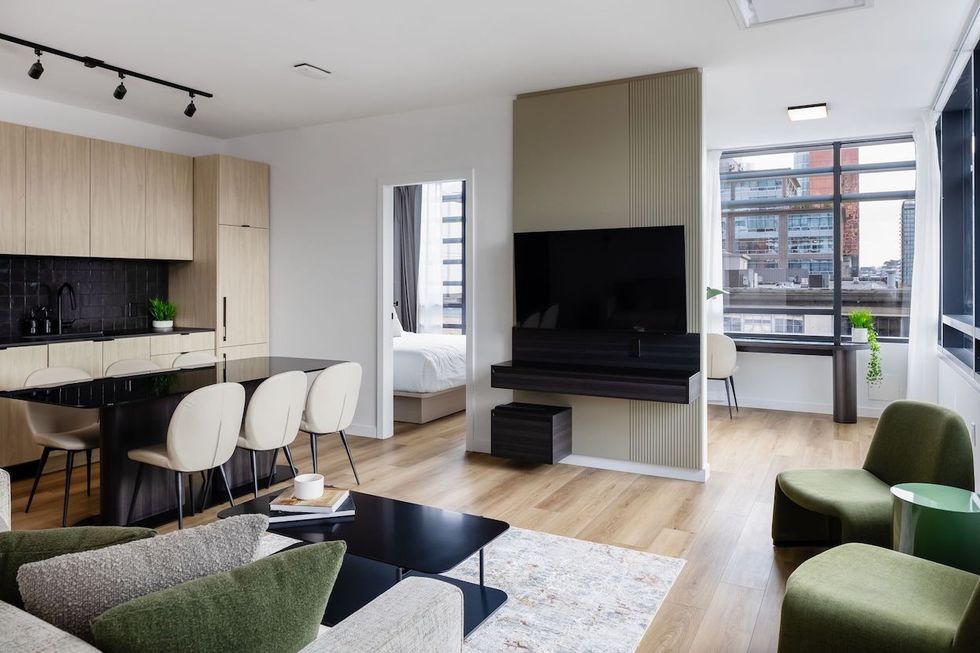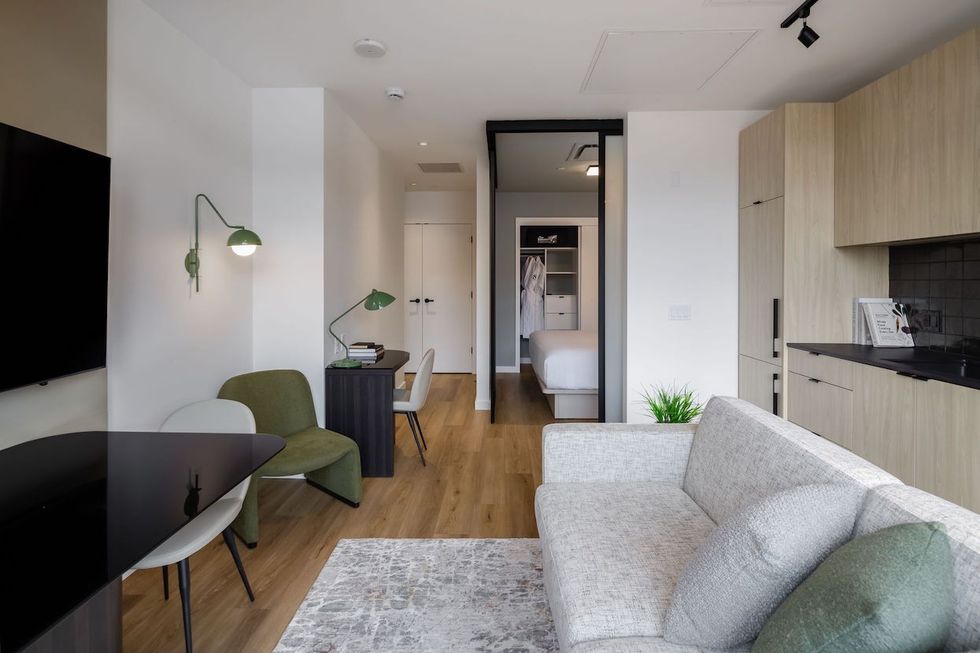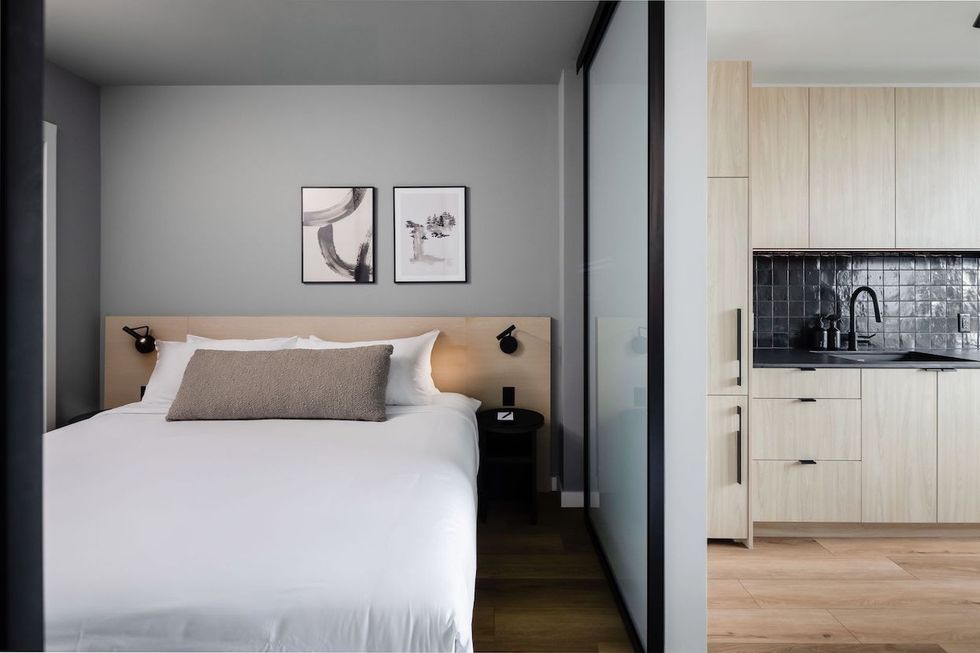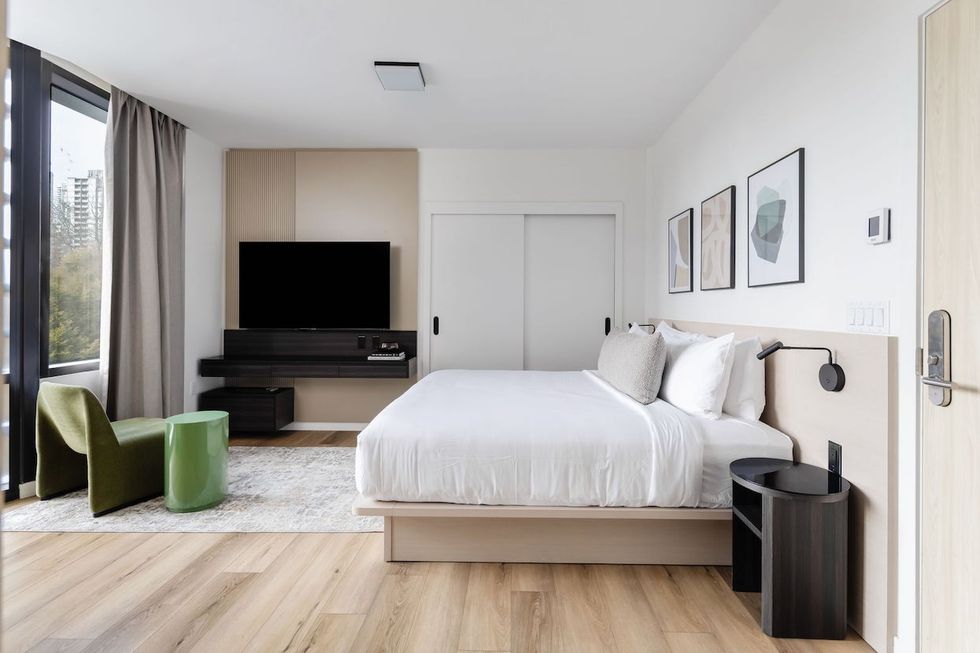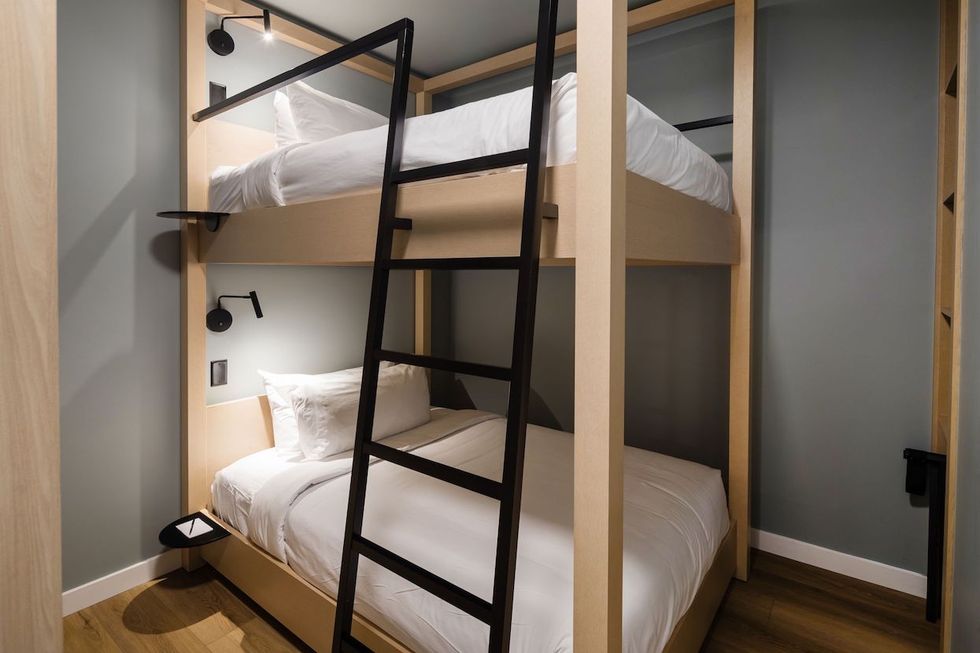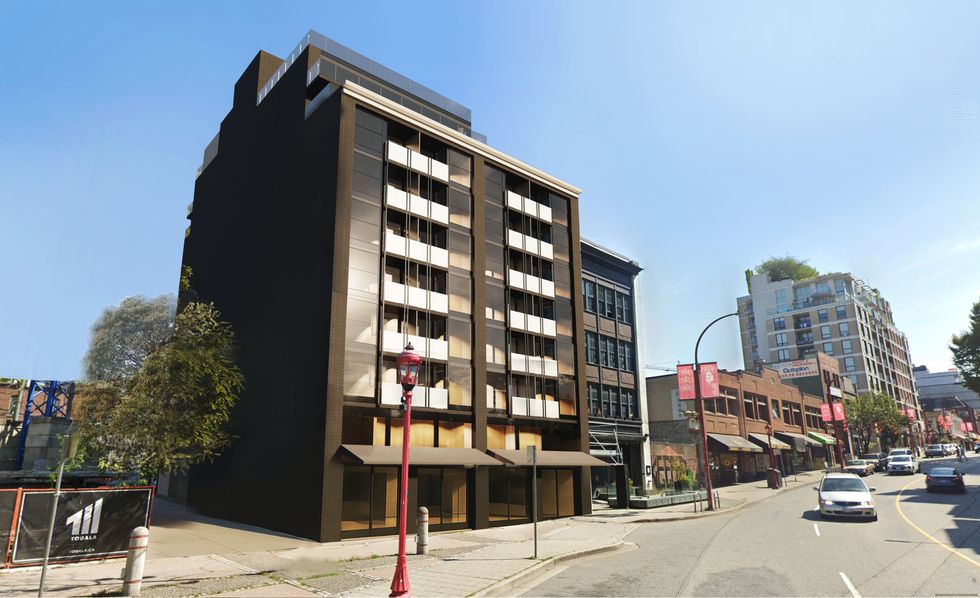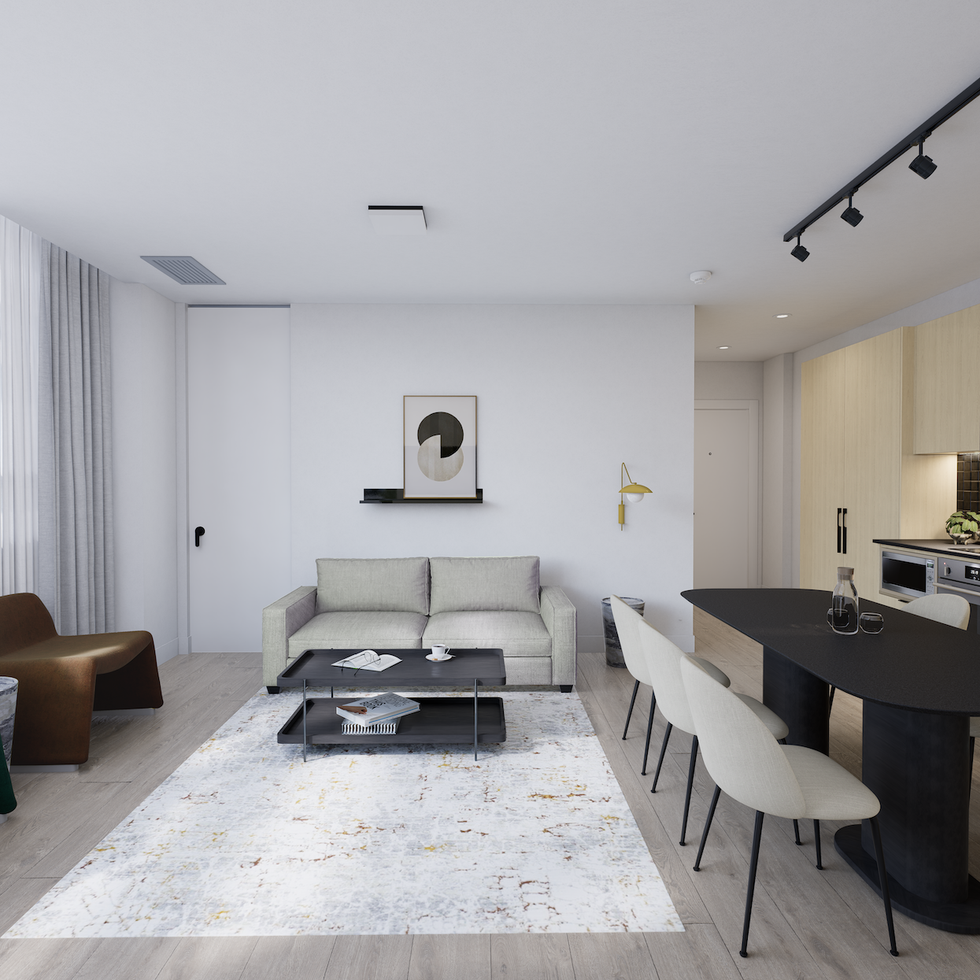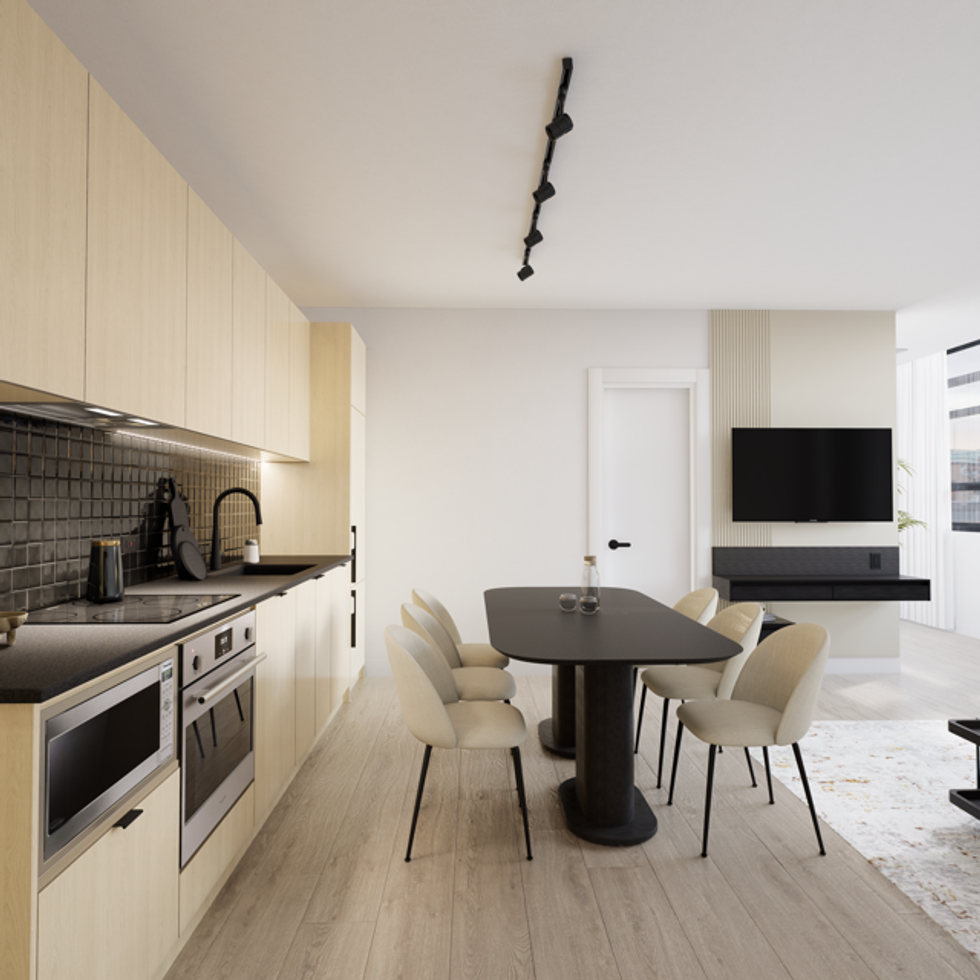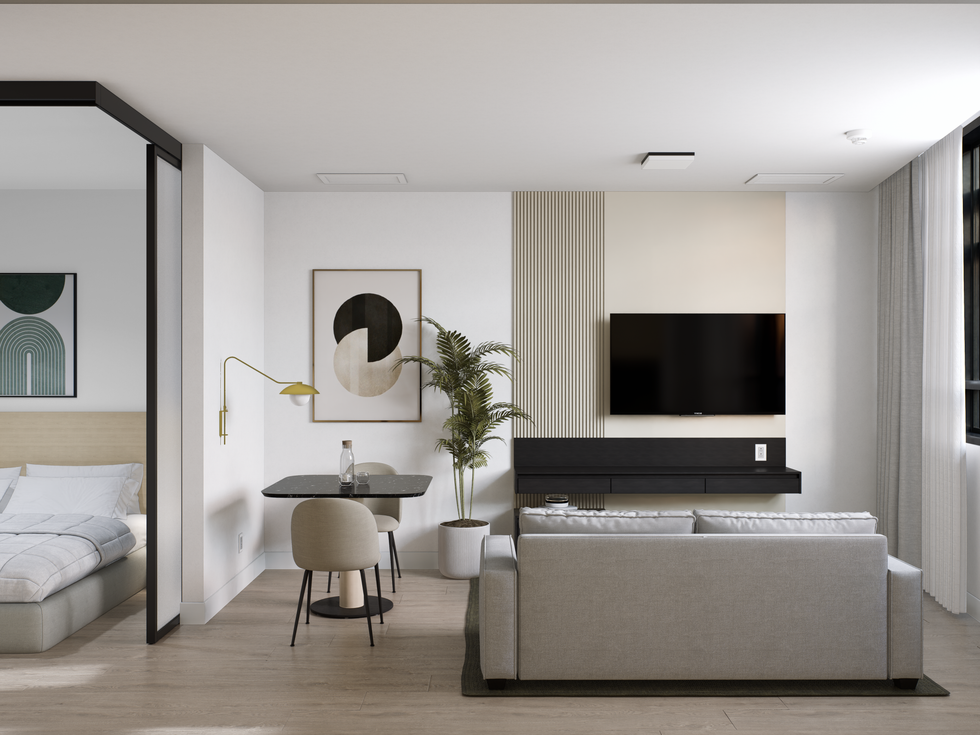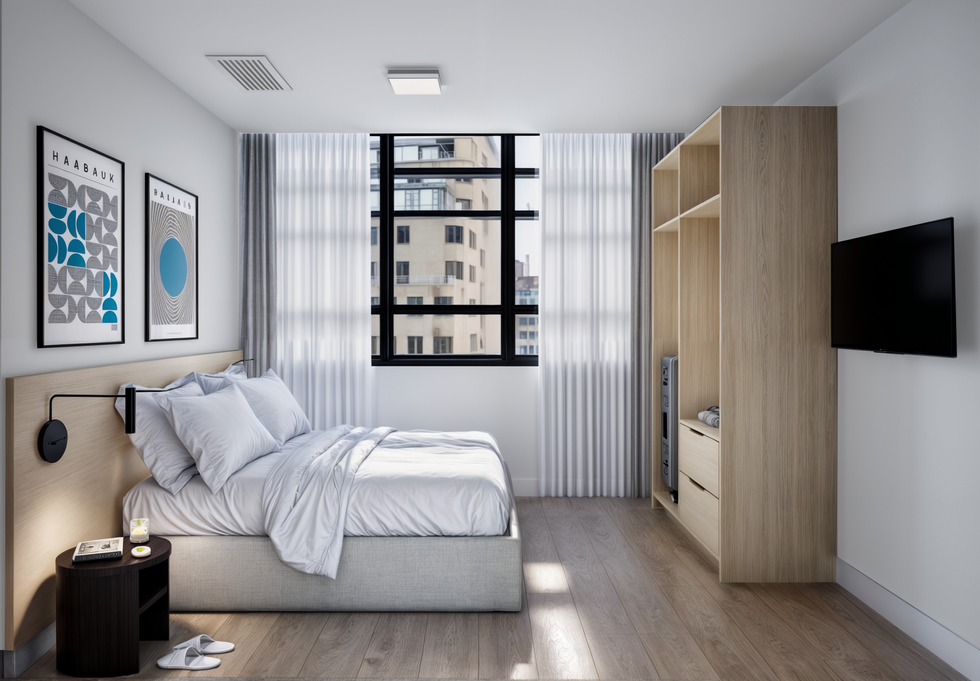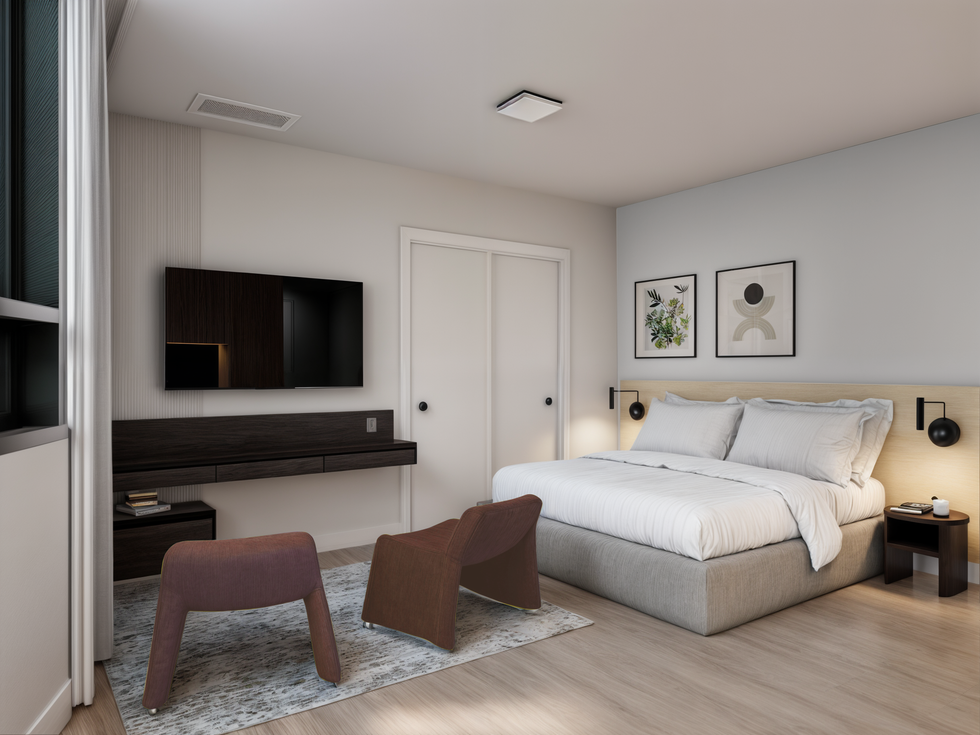From the outside, Smithe House looks like any other Vancouver apartment building. But the interior tells a different story.
This design-forward property, located in the city’s "swish" Yaletown neighbourhood, is what’s known as an aparthotel: a serviced apartment that gives people all of the amenities of a hotel, combined with the comfort and convenience of an Airbnb. It’s a product offering that is growing in popularity around the world.
Smithe House was opened by Vancouver-based Kalido Hospitality Group in October of last year, and instantly began attracting Vancouver visitors who craved a different way to stay. And now, Kalido is gearing up for its second Vancouver aparthotel venture: a sister property called Keefer House that’s set to open in Chinatown in July.
According to Kalido partner Chris Evans, their aparthotel model is targeting two main benefits that the Airbnb customer has grown to love.
“Being able to rent residential-sized homes for short-term stays gave people the opportunity for one, space, and two, location and neighbourhood,” he says. “Our approach was to deliver that type of product in a purpose-built building — but really living on those two main attributes of providing people space that they wanted, and doing it in neighbourhoods that we also believed would have great demand.”
But unlike at an Airbnb, Smithe House and Keefer House guests are not staying in someone’s home or vacation property, forced to live amongst their kitschy art choices, old DVDs, and awkward family photos. Also unlike an Airbnb, housekeeping is included (although it’s only offered every two weeks, but can be requested more frequently for a fee). Kalido’s properties also offer a hyperlocal spin, allowing guests to interact with Vancouver through curated products and amenities — including coffee from Pallett, tea from Tealeaves, dishware from Fable, and home care items from Tallu.
“You get the benefits of a boutique hotel-type experience and service,” says Evans, “within the product type that you would have traditionally seen in an urban Airbnb.”
That means the best parts of an Airbnb (a full kitchen, in-suite laundry, a cool neighbourhood) with the creature comforts of a hotel (an onsite gym, a beautiful aesthetic, a true sense of security). Guests complete check-in via their mobile phones — no waiting in long lobby lineups. Kalido uses technology that allows guests to unlock their suites from their phones, too, and also offers a digital concierge service to help with neighbourhood tips and restaurant recommendations.
“The entire customer experience can be curated much more specifically with control of the entire property, as opposed to just leasing or renting one unit,” Evans explains. “It mimics much more of what you would experience in a traditional hotel stay, with the caveat that it is really the property being empowered with technology that provides a seamless ease of customer experience.”
Price-wise, Smithe House currently runs around $550 per night for a studio apartment, and $630 for a one-bedroom. Comparatively, the boutique Loden Hotel in the same neighbourhood starts at $700 for a regular room. Airbnb rentals in Yaletown of a similar calibre range between $400 and $600 per night.
Unlike Airbnbs that exist in the grey areas, aparthotels are completely above board, and are zoned as hotels. Keefer House — which is set to open just in time for Vancouver’s busiest tourist season — is a brand-new build, but Smithe House is actually located inside a former office building that had been sitting vacant. Kalido worked with the City of Vancouver to rezone it; the whole process — application, approval, construction — only took about a year and a half. It’s perhaps not surprising, considering that the city is in dire need of more hotel rooms.
Vancouver needs a reported 10,000 new rooms by 2050 in order to keep up with fast-increasing demand. It’s a problem that adds more stress onto an already strained housing system: Metro Vancouver currently sports a yearly housing supply gap of some 22,600 residential homes. In April, Destination Vancouver released its Hotel Community Impact Assessment, which outlined some solutions for increasing hotel occupancy — including pre-zoning in commercial and transit-oriented areas, and deferring building cost charges. Shortly thereafter, Council approved updates to the City’s hotel policy, with the aim of encouraging more growth, including allowing additional density for hotels on high streets, and relaxing some restrictions on mixed hotel-residential projects in the downtown core — which currently has 43% of the city’s overall hotel room supply.
With all of this top of mind, Evans is confident that the real estate community is going to start chasing hotel projects — be they aparthotels or traditional ones — at a more rapid rate.
“I think you will certainly begin to see, and you’re already seeing, more and more of the real estate community looking at hotels as an option for development,” says Evans. “And I believe that will certainly stay the case going forward.”
